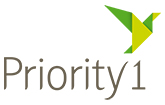
Ever looked at a friend who has everything together and thought ‘what’s their secret?’ Here are five habits you can implement to achieve financial security.
Believe it or not, being secure financially doesn’t involve magic or an outrageous stroke of luck.
More often than not, it results from good habits, such as keeping track of your finances, cutting back on expenses, and planning ahead.
Here are five habits you can develop that will help you become the awe of your friends and family.
Habit one: Set goals
It’s time to take control of your financial security and a great place to start is to identify short, medium, and long-term financial goals.
These might be saving for a family holiday, making additional contributions to your superannuation, paying off expensive credit card debt, or just keep it simple and save a set amount each pay-day.
For example, it’s generally accepted that you should aim to save 20% of your income, according to the Commonwealth Bank.i So try saving 10% of your pay the first month, then an additional 1% each month thereafter.
Habit two: Create a budget
Creating a budget is an incredibly important step to achieving your goals as you work towards your financially security.
Rest assured it’s easier than you think using a good budgeting tool. And there are plenty of helpful apps and websites out there to choose from. We tested a few and liked the simplicity of ASIC’s MoneySmart Budget planner.ii
1. Calculate your household’s monthly income:
Look at your payslips or bank statements to see how much is going into your account on an average month.
2. Tally your monthly expenses:
Check your bank statements, bills, and receipts to see how much you’re spending. Don’t forget to factor in the big ticket items you purchase less often.
3. Remember your goals:
Make an allowance to put some of your income aside to achieve your goals. Can you afford to save 20% of your income or do you start a bit lower?
4. Crunch the numbers:
You’ll now have a summary of how much you’re saving, or losing, each month. Don’t forget to save a copy.
5. Find saving measures:
Boost your savings, identify and cut back on unnecessary expenses. That might include take-away coffee, restaurants, or subscription services you rarely use.
The first few months of sticking to your budget will be the toughest, so start by setting a realistic budget.
Sticking to consistent saving will mean that you can build up an amount that can be used for a significant goal, like paying off a car loan, or saving a deposit on your first home.
Habit three: Optimise your bank accounts
Give your saving efforts a big boost with the checklist below:
Streamline banking –
Get paid into an account that’s not accessible by debit card. Pay off your monthly essentials first, such as rent and utilities, then transfer your budgeted savings into a separate account. Finally, only put as much as you’ll need in a spending account. That’s this month’s budget.
Bank fees –
How much are fees eating into your savings and spending accounts? If you don’t know, find out, then shop around for a better deal.
Credit cards –
Tackle your outstanding credit card balance, check to see if you own any credit cards you no longer need. The sooner you can stop using them and pay off the balance the sooner you will have extra money to put towards your goals. Remember late payment fees and interest will really put a dent into your savings.
Habit four: Track your spending
You need to keep your eye on the ball at all times. That’s because it’s one thing to create a budget and set financial goals, but entirely another to stick to them.
So set aside 15-30 minutes each week or fortnight to make sure you’re keeping on track. This regular review is also a good opportunity to identify any expenses you don’t really need. Your streamlined bank accounts should make this very simple to track your progress.
Notice the spring in your step if you’ve stuck to your budget and saved towards your goals. Remember how good that feels!
Habit five: Plan for the unexpected
Your income is fundamental to achieving your financial goals, so for financial security you should be confident that you have adequate plan in place.
Ask yourself how quickly your family would burn through your savings if you were unable to work for three to five months? Or even longer?
i https://www.commbank.com.au/guidance/consumer-finance/how-to-save-20–of-your-pay-201606.html
ii https://www.moneysmart.gov.au/tools-and-resources/calculators-and-apps/budget-planner
